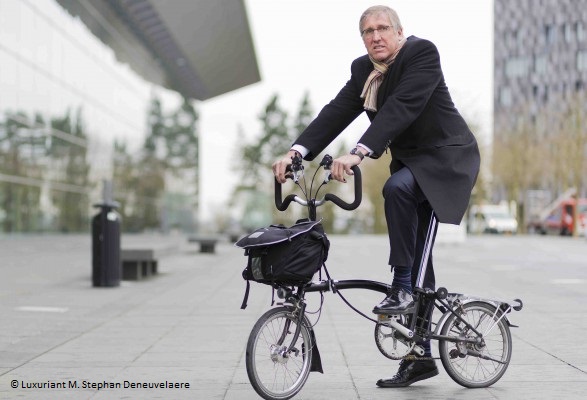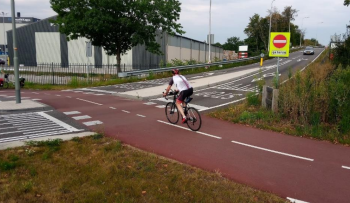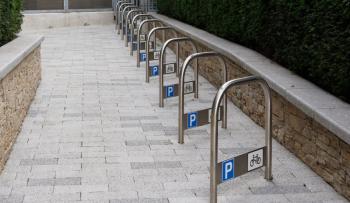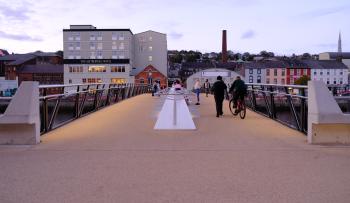
The first meeting of Transport ministers dedicated to cycling as a transport mode
On October 7th 2015, the Luxembourg Presidency of the European Union is organizing the first informal meeting of Transport ministers dedicated exclusively to cycling as a transport mode.
Regarding this event, ECF wanted to know more about the Luxembourg Transport Minister Mr François Bausch, initiator of the meeting. We had the opportunity to ask him few questions.
ECF: What is your personal relation / history with cycling? F. Bausch: I have cycled all my life, even during the decades when it wasn’t fashionable. As a citizen, I have seen cars take over more and more road space until traffic simply got stuck between the remaining narrow pavements. As a deputy mayor in charge of mobility, I then put in bike lanes and a public bike share system. A decade on, cyclists are a normal part of the picture again. I cycle with them to work every morning. It’s not just the fastest way for me to get to the office, it’s also a very pleasurable way to experience my city. ECF: And as a transport minister? F. Bausch: As a transport minister, my job is to create conditions whereby people and goods can move efficiently from A to B. Given proper infrastructure, and counting travel time ‘from kitchen table to office desk’, cycling is the most efficient way to move people over distances of up to seven kilometers or more. The same is true for half of the cargo trips in urban areas. I therefore expect cycling to be included as a fully-fledged transport mode in any multi-modal mobility planning. One of my first actions upon taking office was to put in place ‘active mobility units’ both at my Ministry and at the Public Works Administration. It is their job to optimize every public infrastructure project for cyclists and pedestrians before it reaches my desk.
The 7th of October, ministers of transport from all across Europe will meet in Luxembourg. They will attend presentations from cycling world celebrities such as Jan Gehl & Mikael Colville Andersen.
There will be an "expo area" where they'll be able to discover and try several types of bicycles. At the end of the day a "big parade" is organized through the historical center of Luxembourg city.
Accredited press is attended to join the meeting, also several organizations - such as ECF - will be there.
ECF: What is the current state of cycling development in Luxembourg? F. Bausch: As far as everyday cycling is concerned, the city of Luxembourg leads the way. Its ever improving cycling infrastructure experiences double digit user growth annually. No one can claim anymore that the Grand-Duchy’s topography, climate or culture are not conducive to cycling. Recreational cycling, often a key first step to everyday cycling, is very popular: 60% of all residents have cycled at least once in the past 12 months. That a significant share of them have done so on mountain bikes is probably as much due to a lack of safe cycling infrastructure as it is a tribute to our beautiful landscapes. ECF: What is your plan to improve it? F. Bausch: In February, Parliament unanimously approved my proposal to double the national cycle network. 1400km of high quality bike paths will form the backbone both for cycling in the regions and for cycling to work or to secondary school. Municipalities receive technical assistance and subsidies to create their own cycle path networks and to link them to the national network. Besides that, as I said, I do not sign off on any public infrastructure project that hasn’t been optimised for cyclists and pedestrians. ECF: Is the EU currently giving enough support in your opinion?/ What could be done then? F. Bausch: Given the sheer number of EU goals that an increase in cycling’s modal split would directly contribute to, I agree with the European Parliament’s Transport and Tourism Committee that the European Commission should develop a strategy for the promotion of cycling. The fact that cycle trips are local does not mean that all cycling policy can be local. As a network based element of multi-modal mobility sustaining an EU wide industry, cycling can only fulfil its full potential in the EU if Member States and the European Commission play their part as well. ECF: What do you expect from the transport ministers meeting on cycling on October 7th? F. Bausch: When topics such as congestion-easing, decarbonisation of transport or emissions-reduction are discussed at EU level, the focus always seems to be on high-tech solutions. Cycling is ignored as the proverbial elephant in the room. The Luxembourg Presidency of the European Council intends to paint that elephant in bright colours and to make transport ministers like the bike, not the least by inviting them to cycle during and after the meeting.
- Log in to post comments
Contact the author
Recent news!
Contact Us
Avenue des Arts, 7-8
Postal address: Rue de la Charité, 22
1210 Brussels, Belgium









